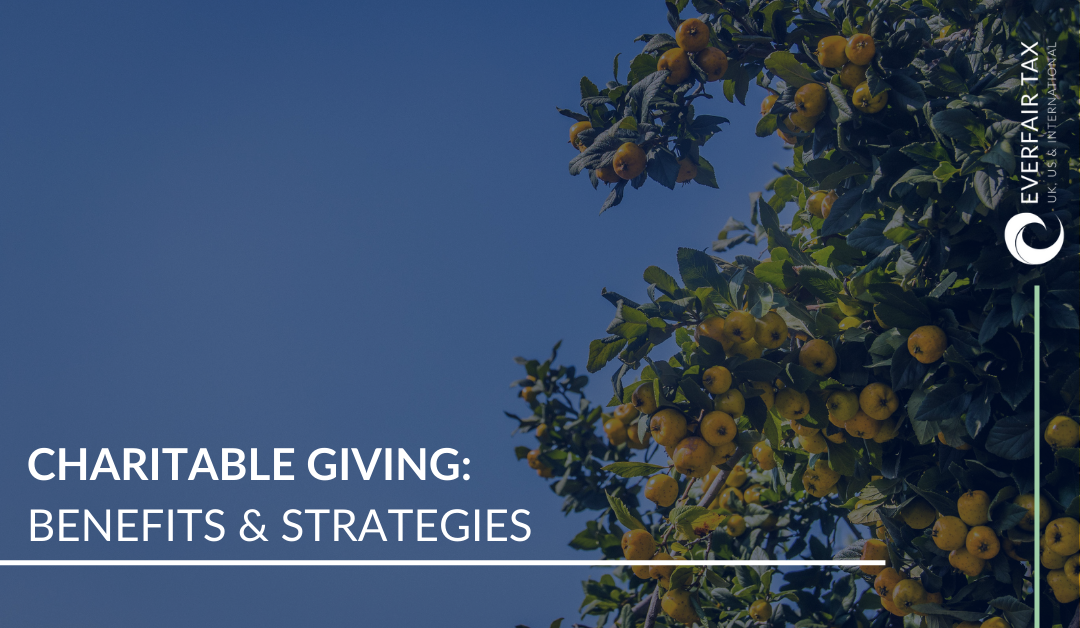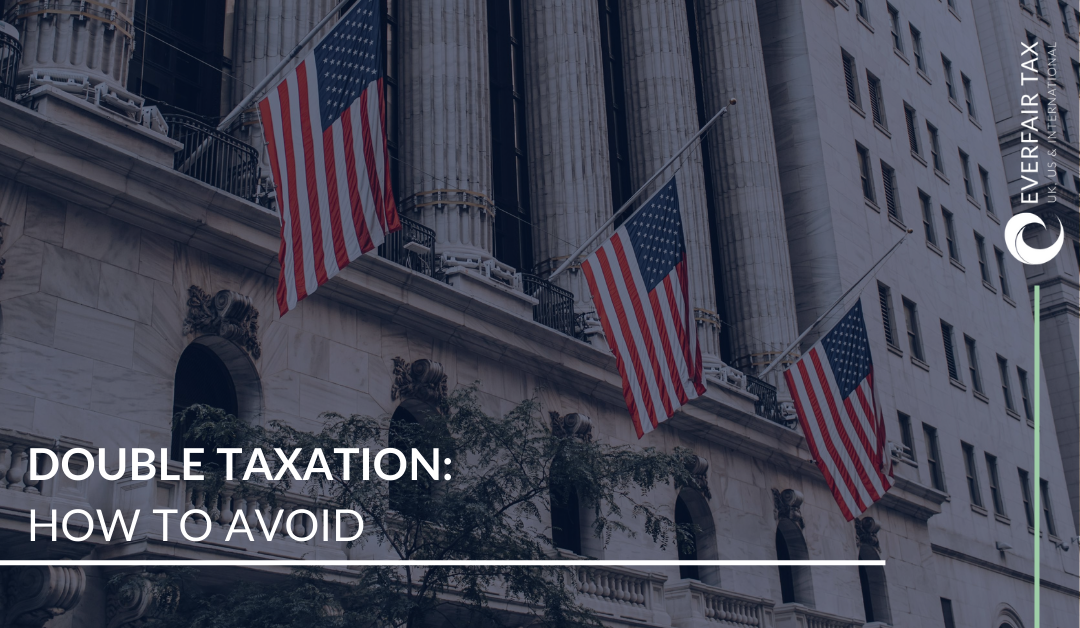UK Year-end Planning
7 March 2024
We are quickly approaching the end of another UK tax filing year. Hence, we would like to highlight some opportunities for year-end tax planning for individuals and their businesses.
Please note the below does not constitute tax advice and each taxpayer should consult with their tax advisor.

Capital Loss Elections
UK resident, non-UK domiciled individuals who have made a claim for the remittance basis to apply in any tax year from 2008/09, and who are not deemed UK domiciled, are only eligible to claim relief for foreign capital losses if an election (a ‘loss election’) is made. Losses must be claimed separately in order for relief to be available.
There is a four-year time limit on this claim from the first year a taxpayer claims the remittance basis. In 2023/24, the latest tax year in respect of which a loss election can be made is 2019/20, which ended on 5 April 2020.
Pension Contributions
If you earn less than £200,000 (or £260,000 when factoring in all pension contributions made by yourself and your employer), then your annual tax-free allowance on pension contributions is £60,000 gross (£48,000 net). This allowance applies to the aggregate of all contributions to all registered pension schemes made by yourself, your employer, or anyone on your behalf. If you make any contributions above the annual allowance, then HMRC will recoup any tax relief on the excess contributions by taxing it as income at your highest marginal rate.
For every £2 earned above £200,000 (or £260,000 including contributions), your annual allowance is reduced by £1 to a minimum of £10,000 (reached at a maximum income of £360,000). This is known as tapering. However, it is possible to increase your annual allowance in the current tax year by utilising any unused allowance carried forward from the previous three tax years.
Please note that the annual allowance is remaining at £60,000 from 6 April 2024 (2024/25).
Pension Lifetime Allowance
The lifetime allowance is the total amount of pension benefits a taxpayer can build up in their lifetime before they need to pay a lifetime allowance charge. It applies to all personal and workplace pensions but not the state pension.
Although this charge was removed from 6 April 2023, the lifetime pension allowance will be scrapped from 6 April 2024 meaning pension holders will no longer have to pay 55 per cent tax on withdrawals from pots over £1.073m, or 25 per cent plus income tax if removed as income. The allowance remains relevant, however, for the limitation of the tax-free lump sum that can be taken.
Deemed Domicile
If a taxpayer has been resident in the UK for 15 out of the previous 20 tax years, they no longer have the ability to claim the remittance basis of taxation and must declare their worldwide income and gains. Please see the section on “Remittance Basis Charge (RBC)” for further information on the remittance basis.
If you anticipate becoming deemed domiciled in the UK on or after 6 April 2024, you may wish to consider some additional planning to manually uplift the cost basis of your shares or setting up a protected settlement. Please speak to your advisor if you are due to become deemed domiciled in the near future.
Remittance Basis Charge (RBC)
This only applies if:
- an individual has made a claim for the remittance basis; and
- he/she is 18 or over in the relevant tax year; and
- he/she has been resident in the UK for at least 7 of the previous 9 tax years.
These individuals can only use the remittance basis if they agree to pay a tax charge of £30,000 per tax year.
This RBC will be in addition to any UK tax on income and gains actually remitted in the tax year.
A higher remittance basis charge of £60,000 applies where the individual claims the remittance basis and has been resident in the UK for at least 12 of the previous 14 tax years.
Taxpayers caught by the RBC have 2 choices:
- To pay UK tax on all their foreign income as it arises (ie, go for arising basis); or
- To claim the remittance basis (and thereby keep their unremitted foreign income and gains outside the reach of UK tax), but at a cost of £30,000 per annum where they have been resident for at least 7 of the previous 9 tax years, or £60,000 per annum if they have been resident for at least 12 of the previous 14 tax years.
The RBC does not apply to:
- Non-domiciled taxpayers who have unremitted foreign income and gains of less than £2,000 per annum. As such taxpayers do not have to claim the remittance basis (it applies automatically), they will not be caught by the charge; or
- Taxpayers who have not been resident in the UK for seven or more of the last nine tax years. Such individuals can claim to use the remittance basis for foreign income and gains without any tax penalty (apart from a loss of personal allowances and the CGT annual exemption); or
- Taxpayers under the age of 18 at the end of the tax year
The choice between switching to the arising basis or paying the RBC will depend on the facts and circumstances of the taxpayer and should therefore be discussed with the relevant advisor ahead of the 8th tax year of residence in case any elections/planning can be undertaken before this becomes relevant.
Capital gains tax – Annual exemption decreasing from 6 April 2024
If you are a UK resident, you are also entitled to a certain tax-free amount of capital gains. This is known as the Annual Exempt Allowance (AEA), sometimes referred to as the annual exemption. For 2023/24 this is £6,000 for individuals or £3,000 for trustees. The annual exemption is being reduced for the 2024/25 tax year to £3,000 for individuals and £1,500 for trustees.
If you have exceeded your limit already you may consider gifting assets to your spouse or civil partner to take advantage of their unused limits or lower rates if applicable.
Dividend allowance reduction from 6 April 2024
In addition to your personal allowance, you also receive an annual dividend allowance. You do not pay tax on any dividend income which falls below this allowance, nor on any dividends received from shares in ISAs. Any dividend income received beyond your annual allowance in 2023/24 is taxed at 8.75% if you are a basic rate taxpayer, 33.75% as a higher rate taxpayer, or 39.35% as an additional rate taxpayer.
For 2023/24, the dividend allowance is £1,000. However, this is being reduced to £500 in 2024/25.
ISA Contributions
The total allowable ISA contribution for 2023/24 is £20,000, with the tax year ending on 5 April 2024.
Changes coming into effect from 6 April 2024 will enable greater flexibility for savers. Savers will be able to pay into more than one of each type of ISA each year (not possible under current rules) and move more easily between different providers.
Savers who invest in “innovative finance ISAs”, which are ISAs that contain peer to peer loans, will also be able to invest in a broader range of investments.
PAYE Code
A review of your PAYE code can help to ensure the correct amount of tax is being withheld at source on any employment income or pension distributions you will receive from 6 April 2024.
Sale of Residential Property
The sale of a UK residential property (not main home) by a UK resident taxpayer must be reported and any capital gains tax paid within 60 days of completion.
This does not apply to sales that result in a loss.
Non-UK residents must report all sales even if no gain or tax arises.
National Insurance
From 6 January 2024, the main rate of class 1 National lnsurance Contributions (NICS) was cut from 12% to 10% for workers earning between £12,570 and £50,270.
For the self-employed, class 2 NIC will be abolished from April 2024. In addition, the rate of class 4 NIC will fall from 9% to 8% on profits over £12,570.
In the Spring Budget, the Chancellor announced a further 2% cut in the NIC rates with effect from 6 April 2024, bringing the rates for workers and self-employed to 8% and 6% respectively.
We, at Everfair Tax, have the in-house expertise to advise you in these specialist areas.
News
For updates featuring tax changes, reminders for deadlines, pointers on how to maximise your accounts, and information on Everfair Tax and their activities: you need look no further than our news & resources pages.
View MoreContact Us
Need some UK, US or International advice?
Contact us now.
Weybridge Office
Ground Floor, 37a Church Street
Weybridge, Surrey KT13 8DG
Tel: 01932 320 800
London Office
40 Gracechurch Street,
London, EC3V 0BT
Tel: 020 3949 5999
Email: info@everfairtax.co.uk

